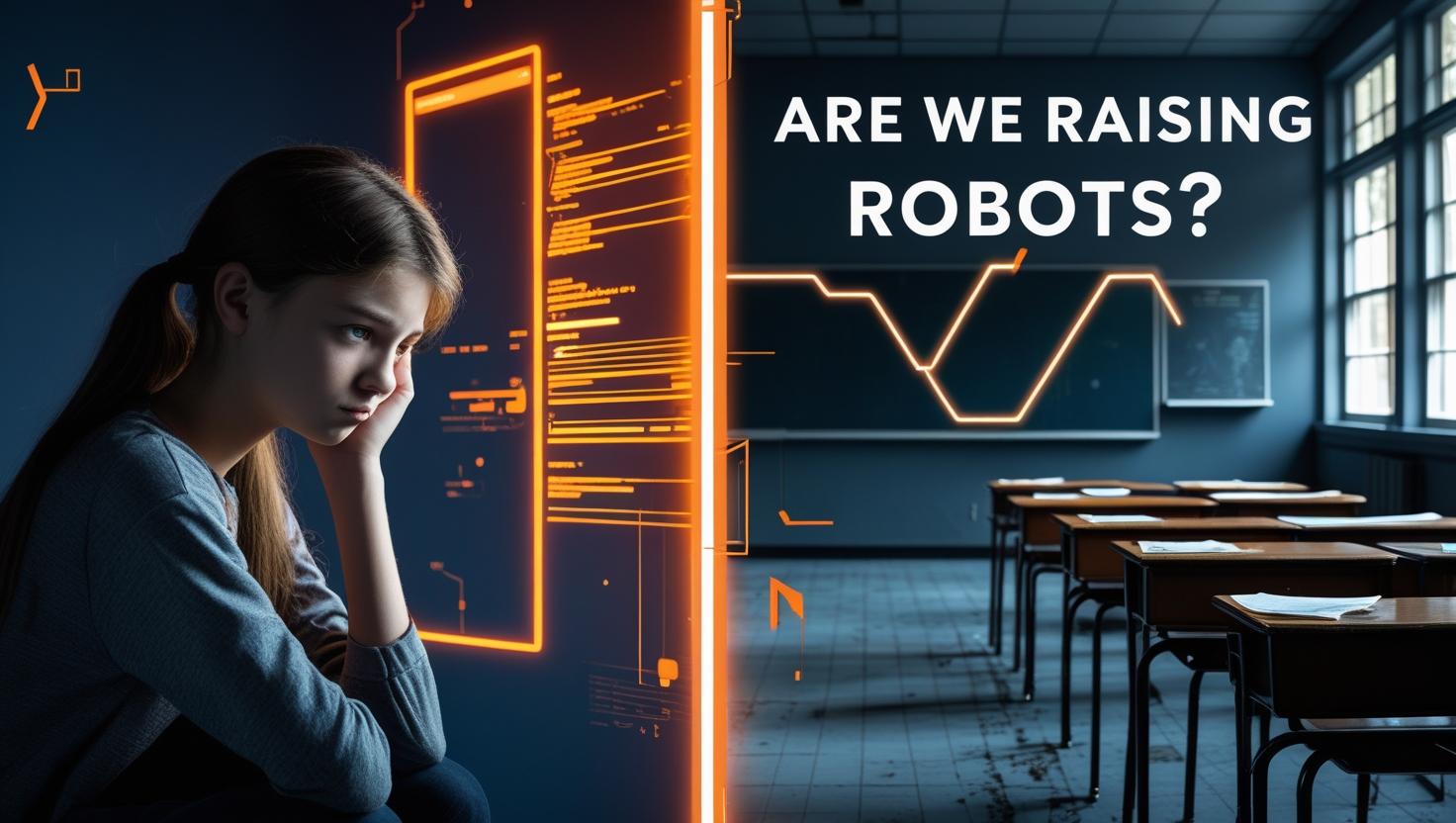Are We Raising Robots? The Hidden Cost of AI on Childhood Development

The notification sound is becoming the soundtrack of modern parenting. Another AI homework helper. Another chatbot therapy session. Another algorithm telling our kids they're perfect just as they are. While we debate whether ChatGPT belongs in classrooms, our children are quietly choosing artificial validation over authentic human connection.
The Authenticity Crisis Nobody's Talking About
School counselor Scott Merkel sees it daily in his office. Kids who can't handle real feedback because they've grown accustomed to AI that validates everything they do. Students who ask "just tell me what to do" because we've trained the curiosity out of them. Young people who prefer artificial relationships because they're frictionless, comfortable, and never challenging.
"Kids don't even have the language to articulate what they're consciously feeling," Merkel explains. "They're relying on an LLM that's going to either over-validate or send them in a direction that isn't what they needed in that moment."
The statistics are sobering. Mental health issues among young people have skyrocketed alongside social media adoption. But the problem isn't just screen time—it's the quality of connection. We're raising a generation that's more comfortable with artificial empathy than authentic human relationships.
The Friction Paradox: Why Easy Isn't Always Better
Here's the uncomfortable truth: growth happens in the messy middle of real relationships, not the comfort zone of algorithmic validation. We've created a world where kids can order coffee online, get groceries delivered, interact with AI companions, and never speak to another human being. The path of least resistance has become the path of least development.
Young men are particularly vulnerable. They're less likely to maintain friendships after high school and more likely to struggle with isolation. Add AI companions to the mix, and you get a generation of males who never learned to navigate the complexities of human connection.
"You need friction for growth," Merkel notes. "We've removed all the right points of friction and created all the wrong ones. We've made kids fragile instead of anti-fragile."
The Agency Crisis: When Kids Stop Driving Their Own Lives
Walk into any high school and you'll see the symptoms of what Merkel calls the "agency crisis." Students who wake up at 6 AM, rush through back-to-back AP classes, endure 90-minute tests, then head to extracurriculars until 9 PM. They haven't eaten. They haven't moved freely. They haven't had a single conversation about something that genuinely interests them.
"They're just trying to survive," Merkel explains. "There's no sense of agency, no space to sit and unpack whether they should be doing this. They feel like they have to."
The result? Learned helplessness. Kids who can't make decisions without step-by-step instructions. Young people who turn to AI not because it's better, but because it's the only place they feel seen as humans rather than performance machines.
The Solution: Humans Teaching Humans to Be Human
The answer isn't banning AI—it's being more intentionally human. Merkel's work with peer counseling programs shows what's possible when we trust kids with real agency. Give them data, let them ask questions, provide safety boundaries, then get out of their way.
"When you give kids some space to lean into their agency, something they're super motivated to run with, and you give them a little bit of light mentorship and guidance, they're going to do amazing things," he says.
The results speak for themselves. Students who felt powerless in traditional classrooms become thought leaders when given authentic agency. Kids who seemed disengaged suddenly produce work that earns standing ovations from adults.
This isn't about rejecting technology. It's about using it intentionally while preserving the irreplaceable value of human connection. AI should be a writing partner, not a replacement for human relationships. A brainstorming tool, not a substitute for authentic feedback.
As Merkel puts it: "Look at the people you love and stay connected to them. Human connection is going to be the most important currency going forward."
The choice is ours. We can continue optimizing childhood for algorithmic ease, or we can create space for the beautiful, messy, growth-producing friction of authentic human relationships. Our kids' mental health depends on which path we choose.
Learn more about raising resilient humans in an AI world at brobots.me










